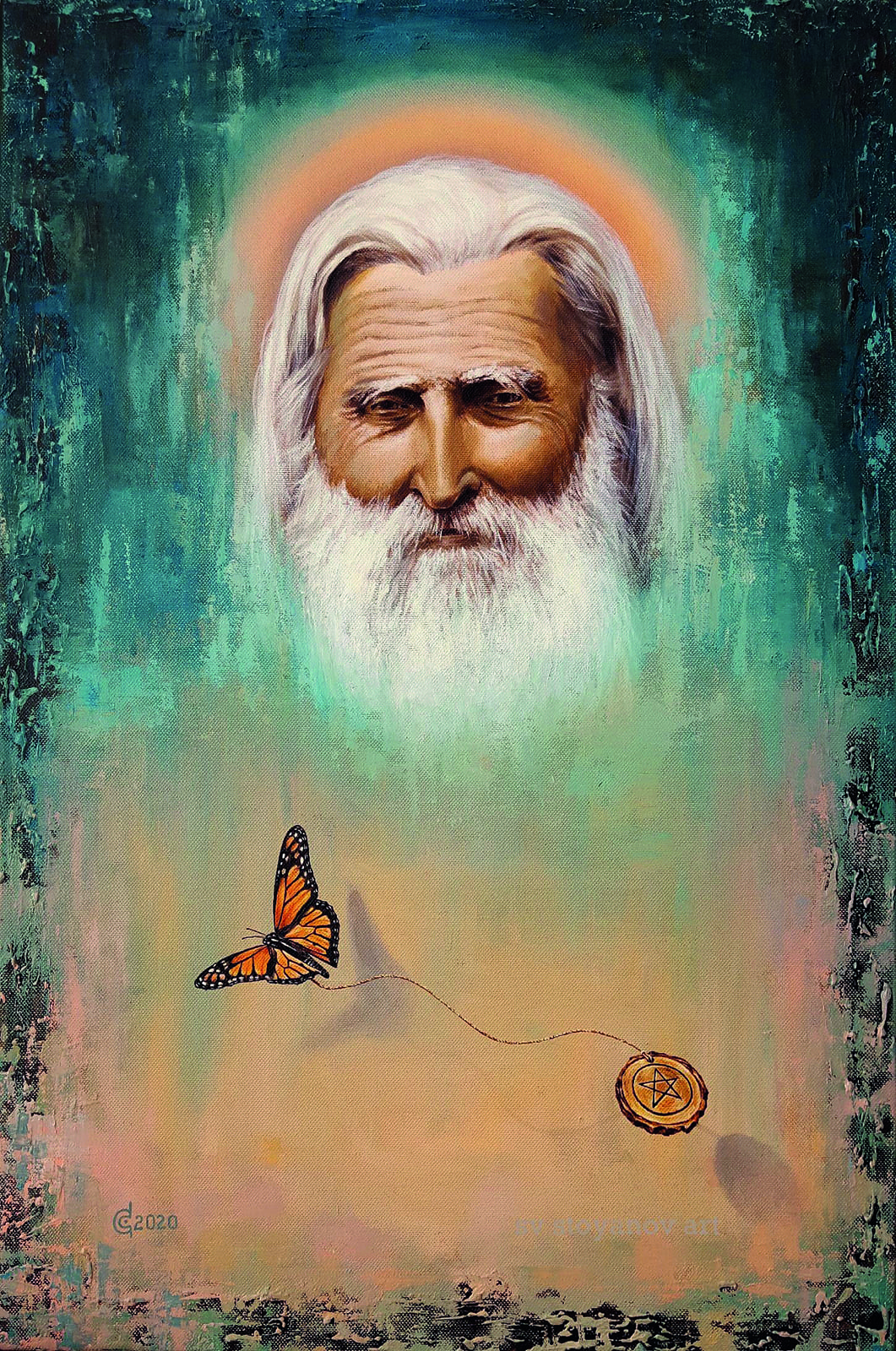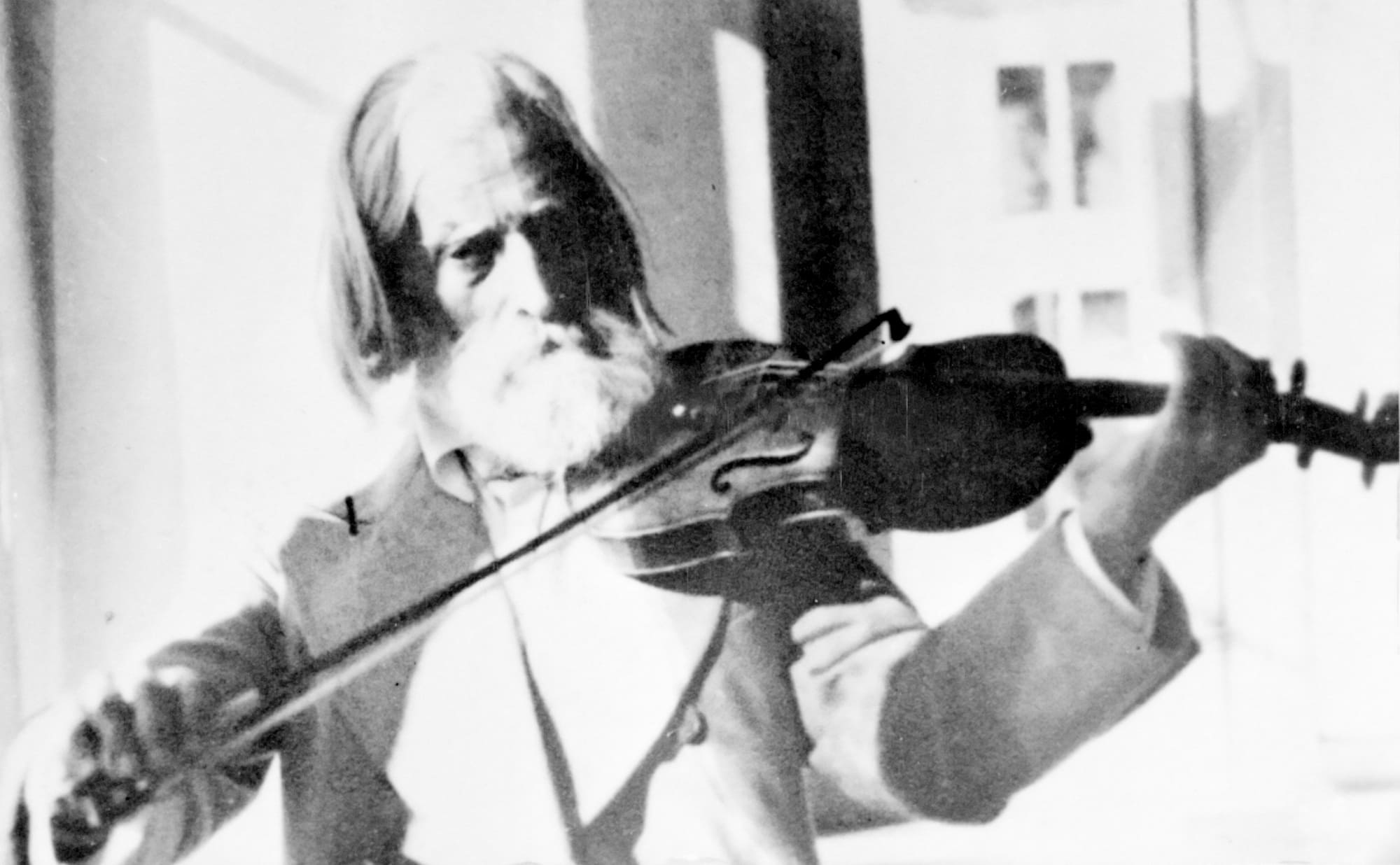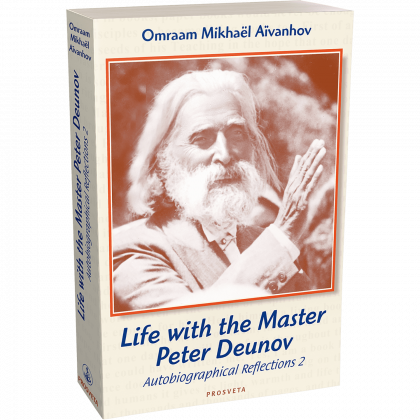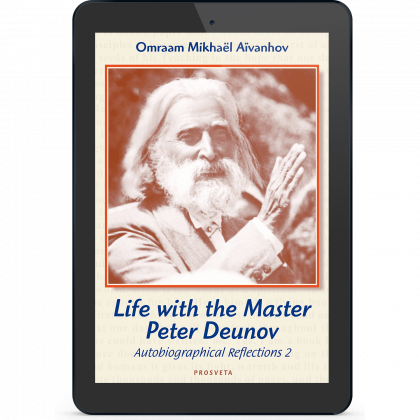What is a spiritual master: Peter Deunov
'The whole world bows before me, but I bow to Master Peter Deunov.'
Albert Einstein
"Master Peter Deunov"
Oil on Linen Canvas © Svetoslav Stoyanov (2020)
Web Site
(click to enlarge)
'We know that the word ‘master’ can have several meanings, depending on how it is used nowadays.
There is the master who instructs his pupils…, the master who has power over his servants or his slaves…, the master who excels in a particular discipline, mastering his or her material, whether physical, intellectual or artistic: from cooks to orchestral conductors, lawyers, academics, etc., there are so many people who are given the title of master!
But a spiritual Master does not seek to become an expert in any particular discipline; it’s just himself, his own material, whether physical or psychic, that he seeks to have command of, to master. And he has no desire to impose on his disciples; it is enough for him to be what he is. It is up to the disciples to discover how they can receive his friendship, his protection, his light, for he is always close to them: he accompanies them, and he speaks to each one in a language they can understand. What is this language? It is his example. He says, ‘Love’, and he gives the example of disinterested love. He says, ‘Work’, and he works. He says, ‘Accept your suffering’, and he, too, accepts, without rebelling, all the aches and pains of body and soul. He never seeks revenge against those who unjustly harass or accuse him. He confronts evil by doing good.
When I met the Master, I felt immediately that he behaved like my mother. Like her, he was not indifferent, but he did not become irritated, and he did not use threats to make people walk the path of good, because he knew that threats and anger often have the opposite effect to what is desired. Like the good shepherd Jesus spoke about in the Gospels, he always went in by the doorway of his disciples’ consciousness. He never tried to break in like a wolf or thief. He did not ask for promises or oaths. He did not seek approval or publicity, and he never disturbed public order, even though some people unjustly accused him of doing so.
How grateful I was to the Master when he drew my attention to my faults, my shortcomings, and showed me the means to correct them, so that I did not suffer from them later on! Because of this, he was my best friend. Most people never say anything until your words or your actions upset them. If this is not the case, they leave you to muddle along, and sometimes even flatter you in order to please you, or because they hope to profit from your mistakes. A Master says what he has to say, but he leaves his disciples free, and in this he imitates the Lord, for the Lord also leaves us free. But leaving us free does not always mean that inwardly he approves. Gradually, I realized it was up to me to sense whether the Master agreed or not with my thoughts, feelings and projects. If I sincerely questioned myself, I knew I would have a reply. When I felt uneasy, that was enough for me to re-examine myself, to find out what mistake I was making...'
"Master Peter Deunov"
Oil on Linen Canvas © Svetoslav Stoyanov (2020)
Web Site
(click to enlarge)
'We know that the word ‘master’ can have several meanings, depending on how it is used nowadays.
There is the master who instructs his pupils…, the master who has power over his servants or his slaves…, the master who excels in a particular discipline, mastering his or her material, whether physical, intellectual or artistic: from cooks to orchestral conductors, lawyers, academics, etc., there are so many people who are given the title of master!
But a spiritual Master does not seek to become an expert in any particular discipline; it’s just himself, his own material, whether physical or psychic, that he seeks to have command of, to master. And he has no desire to impose on his disciples; it is enough for him to be what he is. It is up to the disciples to discover how they can receive his friendship, his protection, his light, for he is always close to them: he accompanies them, and he speaks to each one in a language they can understand.
What is this language? It is his example. He says, ‘Love’, and he gives the example of disinterested love. He says, ‘Work’, and he works. He says, ‘Accept your suffering’, and he, too, accepts, without rebelling, all the aches and pains of body and soul. He never seeks revenge against those who unjustly harass or accuse him. He confronts evil by doing good.
When I met the Master, I felt immediately that he behaved like my mother. Like her, he was not indifferent, but he did not become irritated, and he did not use threats to make people walk the path of good, because he knew that threats and anger often have the opposite effect to what is desired. Like the good shepherd Jesus spoke about in the Gospels, he always went in by the doorway of his disciples’ consciousness. He never tried to break in like a wolf or thief. He did not ask for promises or oaths. He did not seek approval or publicity, and he never disturbed public order, even though some people unjustly accused him of doing so.
How grateful I was to the Master when he drew my attention to my faults, my shortcomings, and showed me the means to correct them, so that I did not suffer from them later on! Because of this, he was my best friend. Most people never say anything until your words or your actions upset them. If this is not the case, they leave you to muddle along, and sometimes even flatter you in order to please you, or because they hope to profit from your mistakes. A Master says what he has to say, but he leaves his disciples free, and in this he imitates the Lord, for the Lord also leaves us free. But leaving us free does not always mean that inwardly he approves.
Gradually, I realized it was up to me to sense whether the Master agreed or not with my thoughts, feelings and projects. If I sincerely questioned myself, I knew I would have a reply. When I felt uneasy, that was enough for me to re-examine myself, to find out what mistake I was making...'




